Religion
Election of Black Leader Helps Redeem Episcopal Church

Bishop Michael Curry of North Carolina, smiles after being elected the Episcopal Church’s first African-American presiding bishop on Saturday, June 27, 2015. (AP Photo/Rick Bowmer)
By George E. Curry
NNPA Editor-in-Chief
NEWS ANALYSIS
WASHINGTON (NNPA) – The recent election of Bishop Michael Curry as the 27th presiding bishop of The Episcopal Church – the first African American to hold the denomination’s highest office – to succeed the church’s first female presiding bishop is expected to help atone for the church’s failure to take a more active role opposing slavery and Jim Crow laws.
Curry, bishop of the North Carolina Diocese since 2000, was easily elected presiding bishop of the 2.5 million congregation on June 27 at St. Mark’s Cathedral in Salt Lake City, capturing 121 of 174 votes in a four-person race. Prior to moving to North Carolina, Curry served 12 years as rector of St. James Church in Baltimore.
Recalling the election of Bishop Katharine Jefferts Schori nine years ago as the church’s first female presiding bishop, Curry said: “It was an experience of the Holy Spirit, for real … And today I had that same feeling. And I think that’s a sign of our church growing more deeply in the spirit of God and the movement of God’s spirit in our world.”
He explained, “ … My election is a reflection of that same thing. That’s exciting. That’s a combination of God and us working together and that is a church willing to grow and being all that God dreams for it to be.”
With roots in the Church of England, the U.S. Episcopal Church is a branch of the 80 million-member Anglican Communion. Like many denominations, the church is facing declining membership, down 18 percent over the past decade.
“In this day and this time, the church can no longer wait for the congregation to come to it,” he said. “The church must go where the congregation is and share the gospel.”
In sharing the gospel, the church continues trying to shed part of its past.
According to a report by the Episcopalian Anti-Racism Commission, published in March, “Even though the southern dioceses seceded from The Episcopal Church during the Civil War, the northern dioceses did not acknowledge any formal separation, nor did they confront the so-called ‘conflict of conscience’ that led to the erection of The Episcopal Church in the Confederate States.
“North and South reunited in a gentleman’s agreement not to address the racial issues that had split other denominations. While black parishes in the northern dioceses thrived on internal resources, despite what one observer called ‘the arrogance of white liberals,’ Southern patrimony, made it virtually impossible for Episcopalians…to recognize those formerly in bondage, indeed those who they had previously owned, as equal citizens under the law.”
In the mid-60s, the church made a special effort to diversify its leadership.
“Executive Council membership was expanded to include four minority representatives, two of which were to be nominated by the Union of Black Clergy and Laity (UBCL),” the report stated. “The Church’s ability to see racism in its own behavior and institutional practices could only have occurred because governance changes ensured the presence of new diverse voices. Nonetheless, change in the programmatic management at the Church’s headquarters was slow to recognize institutional racism.”
The report recalled, “The Church first took action on addressing institutional racism in the 1980s. A 1982 Church-wide Conference on Racism drew delegates from 50 dioceses including bishops and deputies to push for change in the councils of the Church through training and education programs. In response General Convention for the first time requested every diocese and congregation to establish committees on racism (1982-A062). Convention also endorsed Council’s 1981 Affirmative Action policy (1982- A152). In 1986 Presiding Bishop Browning stated to Executive Council that, ‘no greater challenge faces the Church than that of racism,’ and committed the Episcopal Church to set an example of an organization confronting institutional racism.”
Since then, the church has conducted anti-racism training, racism audits and undertaken other action to make the church more diverse.
Judging by his past, the new presiding bishop is likely to accelerate those efforts.
Curry earned a reputation of taking the gospel beyond the church walls and participating in the Moral Monday crusades to challenge North Carolina lawmakers on such issues as voting rights and income inequality.
The leader of the Moral Monday Movement in North Carolina, NAACP President Rev. William J. Barber, II, said in a statement: “We humbly add our congratulations to our prophetic friend, the new Presiding Bishop of nearly 2 million Episcopalians across America. His landslide election by the predominantly white Episcopalian church is particularly striking in the wake of the assassinations of nine African Methodist Episcopalians in Charleston less than two weeks before.”
The new leader was highly praised by convention delegates interviewed by the Episcopal News Service.
Tennessee resident Michael Moore said, “I’m a cradle Episcopalian, fourth generation Episcopalian, and I think he will do a lot to bring people back together again. Through him we can send a message to the world and to my daughter, who’s become cynical about the church. He can bring us all together, not just Black people who’ve left, but he can also give White people hope…There’s so much divide in the world, we need someone like him to bring us together.”
Rev. Stephanie Spellers, chaplain to the House of Bishops, said, “I can’t stop crying. This is not even about Michael Curry. … This is a victory for Jesus. … I could just feel the Spirit just pouring out, and it’s not going to be ever the same again.”
Jane Cosby, an Executive Council member from Philadelphia, said: “…The fact that he got it on the first ballot and the fact that I’ve lived long enough to see a Black president of the United States and now a Black presiding bishop in The Episcopal Church, I’ve got nothing else to wish for. If I die to tonight it will be OK.”
###
#NNPA BlackPress
COMMENTARY: Prayer is Your Power
Terrible things happen to good people often. We live in an unjust world with people making decisions that are informed more by profit than people. We cannot take those principles into our relationship with God. We must believe that “… all things work together for good to them that love God, to them who are the called according to His purpose.”
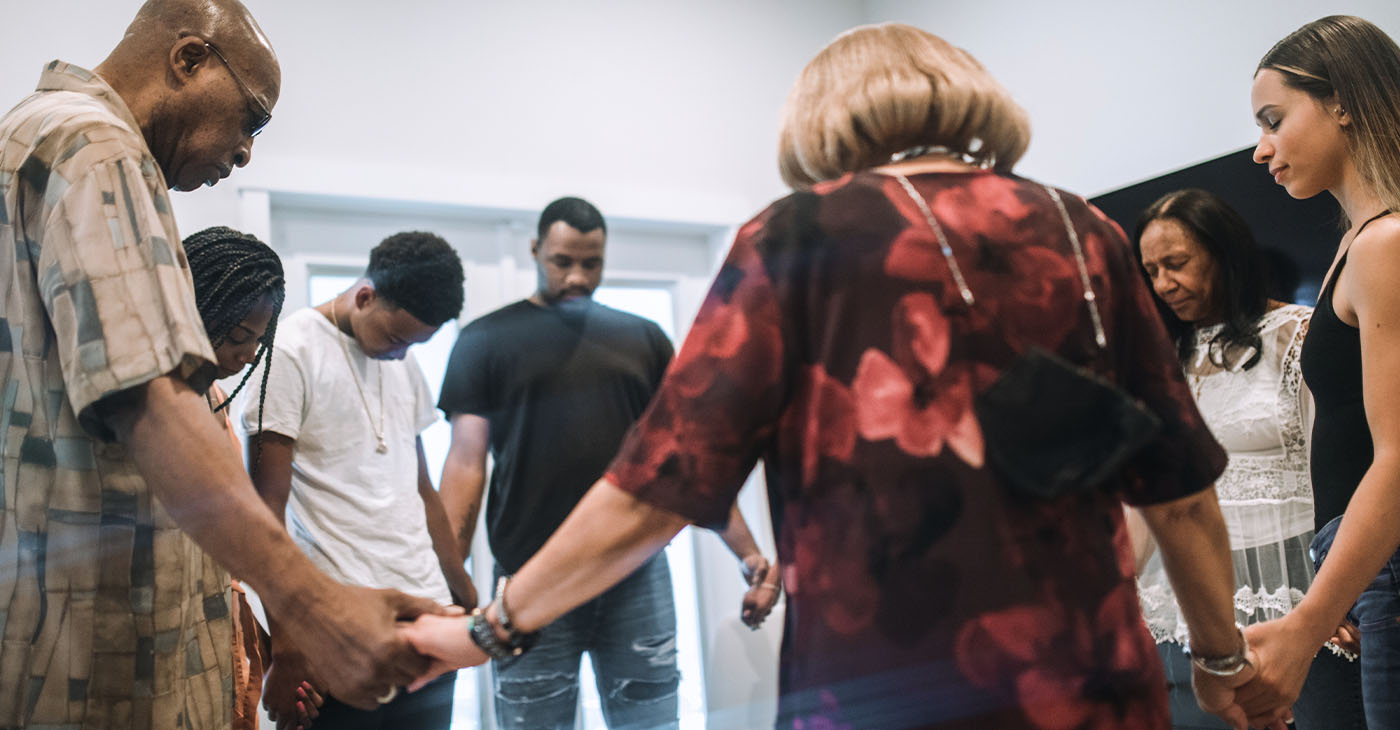
Faithful Utterances
By Dr. Froswa Booker-Drew | Texas Metro News
This week, a friend informed me that she was following the ambulance to the hospital with her husband. Her husband was going through a major health crisis. She wasn’t the only one who reached out—a friend’s mother had unexplained pain and another friend contacted me about her friend’s son who was hospitalized with pneumonia. Each of them asked that I pray for them.
I consider it an honor to pray for others. Prayer is powerful and I love that I have a group of friends who I can turn to that I call the “prayer warriors” that when I send a text to lift up the concerns and issues of others before God, they go into battle mode.
Prayer is a weapon and I think many of us don’t understand its power until we need it. For many of us, it’s a routine, something that’s more about religion than it is about relationship. We have gotten prayer twisted as some exchange solely for stuff. God is not a celestial Santa Claus dropping off gifts. Prayer is an opportunity to go before to God sincerely in relationship. “And when you pray, you must not be like the hypocrites. For they love to stand and pray in the synagogues and at the street corners, that they may be seen by others.
Truly, I say to you, they have received their reward. But when you pray, go into your room and shut the door and pray to your Father who is in secret. And your Father who sees in secret will reward you. And when you pray, do not heap up empty phrases as the Gentiles do, for they think that they will be heard for their many words. Do not be like them, for your Father knows what you need before you ask Him.” (Matthew 6:5–8)
Prayer is about faith. It is believing that God hears us. “Let us then with confidence draw near to the throne of grace, that we may receive mercy and find grace to help in time of need.” (Hebrews 4:16) I realize that my prayers are even more powerful when I am in relationship with others seeking God: “For where two or three are gathered in my name, I am there among them” (Matthew 18:20). It’s dangerous when we see prayer as a way to manipulate God into doing what we want. There is nothing wrong with bringing your requests before God but it’s important to check our motivation and intention. It’s also important to know that just because God doesn’t answer our prayers in the way that we want does not mean that God doesn’t love us.
It doesn’t mean that God does not hear us. It does not negate the omnipotence or goodness of God, either. We must believe that God is able. “And without faith it is impossible to please God, because anyone who comes to him must believe that He exists and that He rewards those who earnestly seek him.” (Hebrews 11:6) It’s easy to blame God when things don’t go the way we want them to—”the rain falls on the just and the unjust” (Matthew 5:45).
Terrible things happen to good people often. We live in an unjust world with people making decisions that are informed more by profit than people. We cannot take those principles into our relationship with God. We must believe that “… all things work together for good to them that love God, to them who are the called according to His purpose.” (Romans 8:28) …. God is concerned with our hearts, with people and cares for us even when things don’t go the way we’d like. I can report that all of the individuals we prayed for had excellent results.
God is good! Yet, I realize that this isn’t always the case. Prayer is powerful. God wants us to have this daily form of communication. 1 John 5:14, tells us: “And this is the boldness we have in Him, that if we ask anything according to His will, He hears us.” Don’t use prayer just when you need something. Just as all relationships require consistent communication for growth and results, the same is even more important in our relationship with God. Prayer is a powerful partnership with God that can move mountains when we believe!
Dr. Froswa’ Booker-Drew is the host of the Tapestry Podcast and the author of three books for women. She is also the Vice President of Community Affairs for the State Fair of Texas. To learn more, visit drfroswa.com.
Black History
AFRICAN-ISH: The First Christmas Story
Both Joseph and Mary were of the lineage of David, Joseph descended from David’s son Solomon (and Bathsheba), and Mary extended from another son Nathan. Therefore, they were required to go to the little town of Bethlehem, in Judea and there, in a cattle shed Jesus was born. (Bethlehem is 70 miles south of Nazareth and 5 miles southwest of Jerusalem).

By Simon Burris
The narrative of Jesus’ birth and proof of his Hamitic (Black) African bloodline* began in the Old Testament in the book of Genesis chapter 10, in the Land of Ham, located in southwest Asia and Africa. Three most prominent Hamitic personalities: Abraham, Isaiah and David.
People and places of Hamitic origins are underlined.
(1) Abraham the patriarch was Babylonian (Ethnic Ethiopian). Gen. 11:31; (2) Isaiah a prophet lived 750 years before Christ, predicted the virgin birth was a nephew of Amaziah a Judahite (Canaanite) king; and (3) David the great king of Israel was a descendant of Abraham, also of Tamar and Rahab (Canaanites).
The (Hamitic) Genealogy of Jesus Christ: Matthew 1:1-17; Luke 3:23-34
The Birth of Jesus: (about 6-4 BC)
Mary the virgin mother of Jesus and her husband Joseph the “foster” father of Jesus, a carpenter, lived in Nazareth, a town in northern Palestine.
At this time Emperor Augustus of the Roman Empire decreed that a census would be taken. Everyone in his domain had to go to his or her hometown to register. He probably ordered Cyrenius ( Quirinius ) the Afro Roman governor of Syria / Judeadistrict to take charge and supervise the mandate.
Both Joseph and Mary were of the lineage of David, Joseph descended from David’s son Solomon (and Bathsheba), and Mary extended from another son Nathan. Therefore, they were required to go to the little town of Bethlehem, in Judea and there, in a cattle shed Jesus was born. (Bethlehem is 70 miles south of Nazareth and 5 miles southwest of Jerusalem).
A short time later shepherds from the countryside as well as Wise Men (Magi) from neighboring countries Arabia, Babylonia,and Persia traveled to the nativity site, paid homage and worshiped the infant-Savior.
Now Joseph was warned by the Lord in a dream that Herod the Edomite king of Judea was plotting the murder of the child, fled with his family to Egypt, returning to Nazareth after the death of Herod.
Jesus had siblings, brothers Joseph, Simon, Epistle writers James, Jude, and several sisters. The last mention of Joseph occurs in the Gospel of Luke when he and Mary take the 12-year-old Jesus to Jerusalem. Mary played a vital role all through Jesus’ life, from the day He was born till the time of the crucifixion.
Conclusion: The four Gospels: Matthew, Mark, Luke and John chronicled the full theme of Christ as the universal Savior. *Descendants of Ham’s sons Cush (Ethiopia), Mizraim (Egypt), Put (Libya) and Canaan (Ancient Palestine/Israel). Genesis 10: 6-20
Footnotes: Why is Christmas celebrated on December 25?
The ancient Romans celebrated the winter solstice on December 25 as the birthday of the SUN; the Babylonians and Persians -SON of the SUN. Some 300 plus years after Jesus’ earthly demise, Roman Emperor Constantine in 336 legalized this date as the birthday of the SON of GOD – JESUS the CHRIST! Originally: Christ’s Mass.
Eurocentric racism: Pope Julius II in 1508 commissioned Michelangelo, Raphael and other Renaissance artists and church scholars to portray and depict almost all major biblical characters as Europeans (Caucasians), save servants and slaves.
Activism
SDA Churches Join Outreach Efforts to Find Solutions to Upsurge of Violence
the Northern California Conference of Seventh Day Adventists (SDA) held their annual Convocation at Grand Avenue Seventh Day Adventist Church in Oakland. Seven hundred people came together in celebration and worship. The theme was “Embracing Change.”
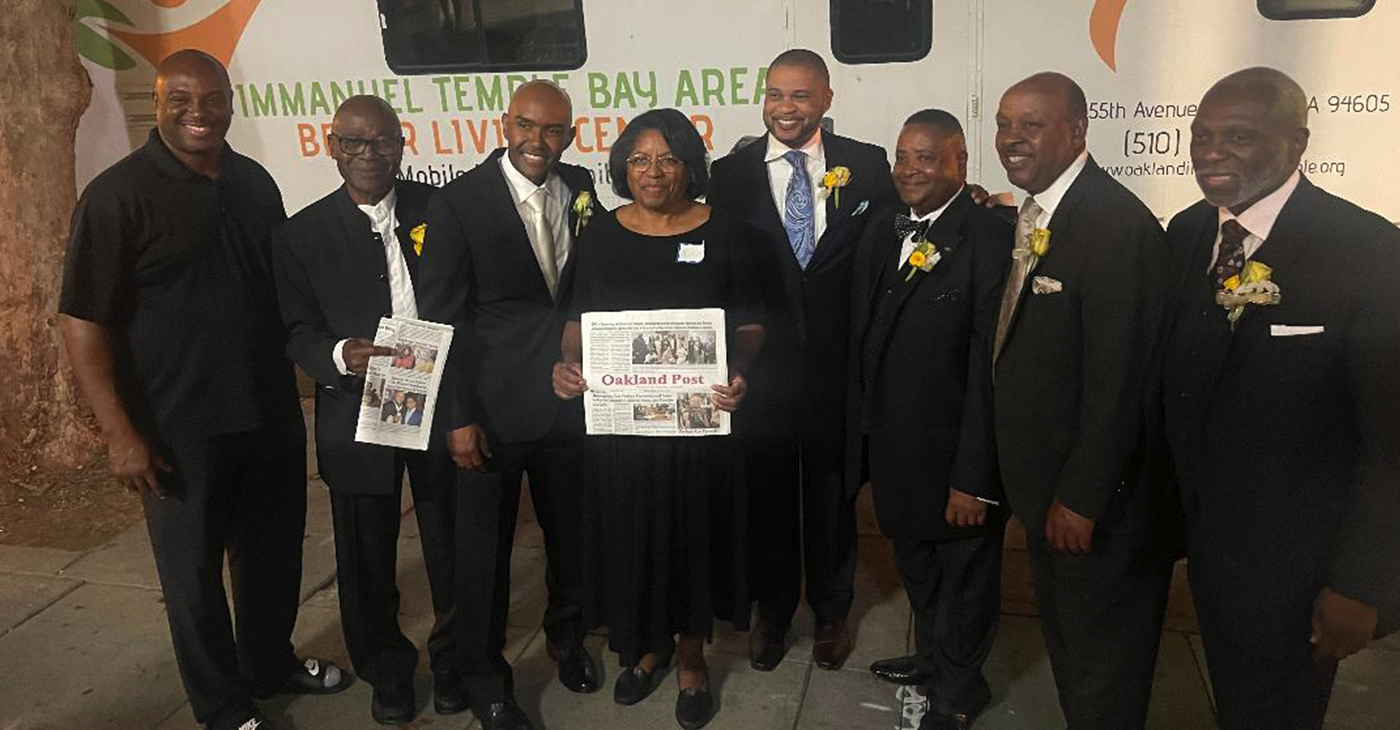
By Post Staff
On Oct. 8, the Northern California Conference of Seventh Day Adventists (SDA) held their annual Convocation at Grand Avenue Seventh Day Adventist Church in Oakland. Seven hundred people came together in celebration and worship. The theme was “Embracing Change.” The guest speaker was Dr. Myron Edmonds, who pastors in Cleveland, Ohio. He spoke about how Christ wasn’t a traditionalist, and the work isn’t being done because some in the church don’t wish to change and they tend to demonize new ideas.
Throughout the day, the Mobile Medical Health Van operated by Immanuel Temple Seventh Day Adventist Church out of Oakland sat in front of the church and provided health screenings and community resource information to the general public. The Medical Van, which was gifted to the church by Pastor Raymond Lankford of Healthy Communities, has provided free health care services throughout Alameda County for the last few years. The prayer of Pastor Damon Washington of Immanuel Temple Church, who was ordained during the afternoon program, is for their health ministry to partner with the other providers like OPIC and Oakland Workforce Agencies and to combat the ongoing health disparities and violence within the city and beyond.
They have pledged to work with the Chaplains, the OPIC and the Formerly Incarcerated Giving Back, who want to make amends for the damages they have done to harm Oakland.
-

 Activism4 weeks ago
Activism4 weeks agoOakland Post: Week of March 27 – April 2, 2024
-

 #NNPA BlackPress4 weeks ago
#NNPA BlackPress4 weeks agoCOMMENTARY: D.C. Crime Bill Fails to Address Root Causes of Violence and Incarceration
-

 #NNPA BlackPress4 weeks ago
#NNPA BlackPress4 weeks agoMayor, City Council President React to May 31 Closing of Birmingham-Southern College
-

 #NNPA BlackPress4 weeks ago
#NNPA BlackPress4 weeks agoBeloved Actor and Activist Louis Cameron Gossett Jr. Dies at 87
-

 Community1 week ago
Community1 week agoFinancial Assistance Bill for Descendants of Enslaved Persons to Help Them Purchase, Own, or Maintain a Home
-

 Activism3 weeks ago
Activism3 weeks agoOakland Post: Week of April 3 – 6, 2024
-

 Business1 week ago
Business1 week agoV.P. Kamala Harris: Americans With Criminal Records Will Soon Be Eligible for SBA Loans
-

 Activism2 weeks ago
Activism2 weeks agoOakland Post: Week of April 10 – 16, 2024




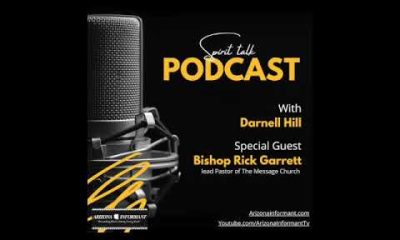





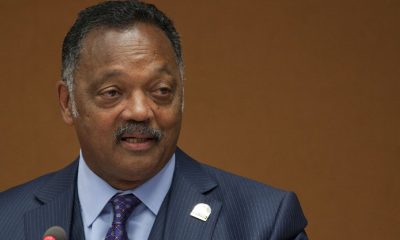

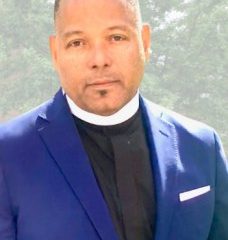

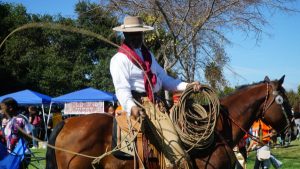










































Pingback: Yahabari..South Florida Afro American Aggregated News Portal ! - Election of Black Leader Helps Redeem Episcopal Church
Pingback: Yahabari..South Florida Afro American Aggregated News Portal ! - Election of Black Leader Helps Redeem Episcopal Church